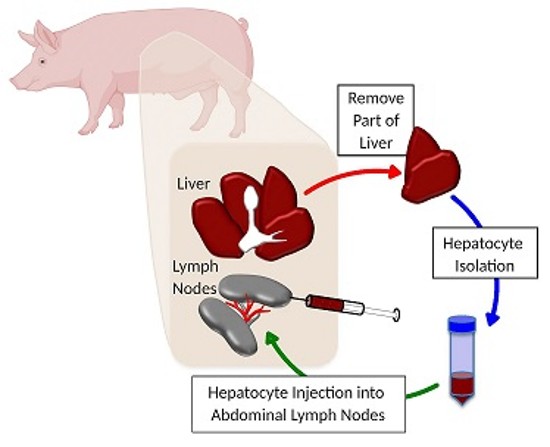LyGenesis is a biomedical company hoping to deliver a technology that will allow patients to grow functioning organs. If successful the company’s cell therapies will disrupt organ transplantation allowing patients to grow their own. Instead of surgery, a person will do what some amphibians and reptiles do today when they lose a limb or tail.
The company is using the inherent nature of lymph nodes and their evolutionary function, turning them into rapid bioreactors. Our lymph nodes already do this when they produce infection-fighting T-cells. But LyGenesis’ therapies turn donated organ cells into biofactories that can become a source for producing viable organs in multiple patients. The only minimally invasive procedure involved is the engrafting of the cells into a patient’s lymph nodes to begin the process of organ development.
In 2012, Dr. Eric Lagasse, who hails from The University of Pittsburgh, had his research featured in an edition of Discover Magazine. The article entitled, Big Idea: Turning Lymph Nodes Into Liver-Growing Factories described ectopic transplantation as a novel therapy allowing patients to grow a functioning liver.
Lagasse discovered that hepatocytes, which are liver cells, when transplanted into lymph nodes turned into miniature livers that could grow and function outside the normal position where livers reside in the human body. He demonstrated this ability in mouse studies which then became the basis for the biological principles behind the therapeutic treatment.
Today LyGenesis has done numerous large animal studies to help develop reproducible results in lymph node sites. The research results are published in Nature Biotechnology, Current Opinions in Organ Transplantation, and elsewhere.

The need today for human organs outpaces the availability of viable choices. More than 20 people die daily waiting for a suitable donor. In the U.S. alone, the wait list for organ transplants numbers well over a hundred thousand and is growing.
End-stage liver disease sufferers seldom are considered candidates for transplantation so they don’t even appear in the wait list statistics. But with LyGenesis, hepatocytes can be harvested even from non-transplant viable livers (see the above illustration) and grafted into patients’ lymph nodes in a minimally-invasive procedure involving endoscopic ultrasound. Once implanted the cells multiply and grow into functioning mini-livers.
So far mice and pigs have been the recipients of this life-saving technology. And in September, the company announced it had its first human volunteer prepared to try the treatment.
LyGenesis has plans for its therapeutic cell therapy to offer the technology to treat Type 1 diabetes, end-stage renal disease, aging, and autoimmune disorders. Organ regeneration will have an enormous impact on human longevity making it possible for our lifespans to extend well beyond current limits. An article appearing in Forbes back in 2021 featured LyGenesis and other life-extending technologies and asked the question, “will you live to 200?” It seems possible if humans can switch out failing organs for new good ones.
In the last week, Dr. Lagasse was presented with the 2022 Innovation Award from the Carnegie Science Center.
















